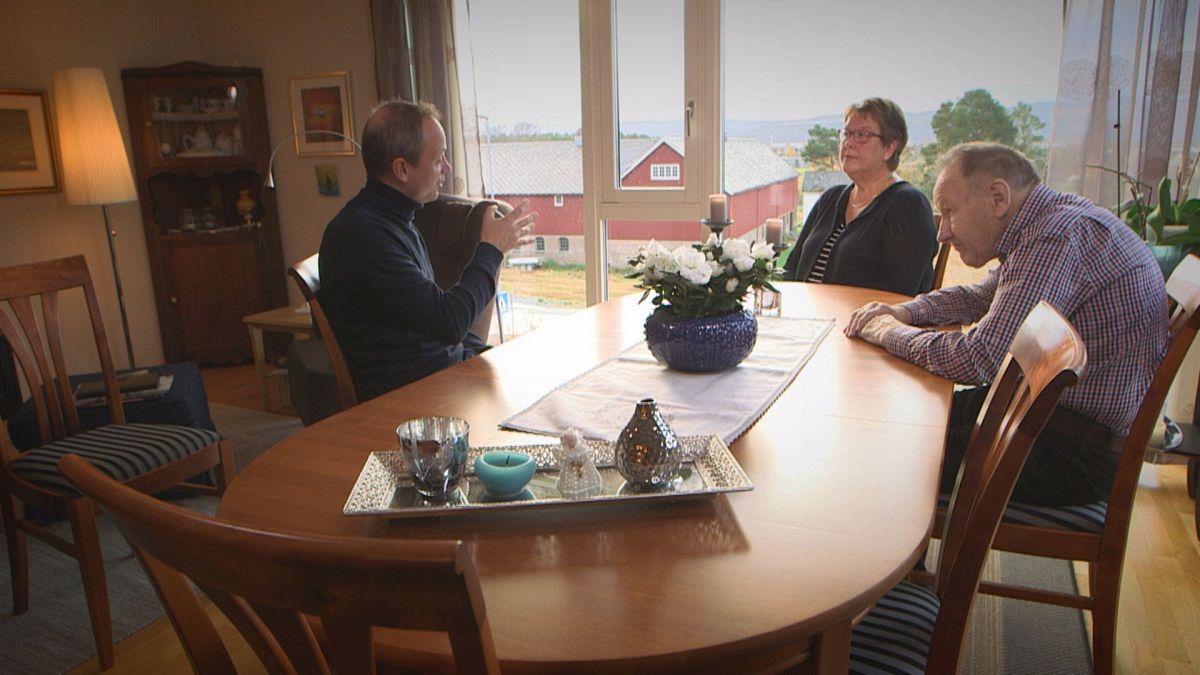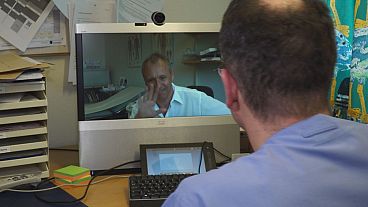What is one of the hardest jobs of all? Caring, because you have to put your heart into it, all the time. Life is tough for carers with careers. Public policy appears to be slow to realise its importa
Millions of people around Europe have to balance their personal with their professional lives. That is especially difficult for carers, people who have to look after someone at home but also hold down a full-time job.
euronews’ Jeremy Wilks went to Trondheim in Norway to meet someone who has been doing that for 18 years.
Inger-Lise Lillefloth’s husband Bjørnar has had Parkinson’s Disease since the early 1990s.
Until she retired, she looked after him and had a regular job too. She told us that managing both was a challenge:
“I worked shifts, so I worked every third weekend, and then days and evenings. And then it was up to me to find a replacement or to swap shifts. If I needed a day off to go to hospital for example, it was up to me to swap or to use my holidays or my overtime.”
Using holidays and overtime hours to look after a loved one is typical of the kinds of problems that some carers face in their daily lives.
Millions of people are affected. The recent European Social Survey found that in 15 EU countries a total of 36% of respondents spent some time caring for a neighbour, friend or family member each week.
Millions today, but tens of millions in the future. “Demographic shifts”:
http://ec.europa.eu/eurostat/documents/2995521/7012459/3-29092015-AP-EN.pdf mean the percentage of Europeans over 80 years old will rise from 5% to 12% by the year 2080.
So how can those people best balance work and care? Lise Lien is an Oslo sociologist who has been surveying the issue:
“First of all we interviewed some people who are in caregiving situations. They are using quite a lot of time on caregiving, some of them are. Others, like you and I maybe, we are coming into that caregiving situation sometime in our lives, so it will affect us all for a longer or shorter period of time.”
What’s the response that she would like to see from employers?
“You have to talk about it at the workplace,” Lise says. “You have to have a dialogue, so you also get the employer to know that you have an issue at home. You may have flexible hours, that was the main issue for those we interviewed and in our survey. It may be you will find some measures for a shorter or longer time or period, that will benefit all, even the employer.”
Establishing a good dialogue between employee and employer, and creating a flexible working environment is part of the solution.
But there could be other fresh approaches too, according to health policy expert Professor Jan Grund:
“We have some good systems for taking care of your child, and children. I think you could manage to have some kind of similar system taking a bit more care of elderly people. It is difficult economics, because you have both the financial short-term economics, and then you have the more longer-term benefits of it.”
Back in Trondheim Inger-Lise echoes that idea. She believes that a form of financial recognition could open up a lot of possibilities.
“For example you could have a caregiving salary and then have some more free time so you are not too dependent on having to go to work, that you have to go to your job every day, because it’s quite demanding. So if you have a little more time off then you can recover, because if you have only one day off it’s often not enough.”
After years of hard work, Inger-Lise is now expecting to be able to place her husband in a care home soon, allowing her to focus on spending quality time with him throughout her retirement.



